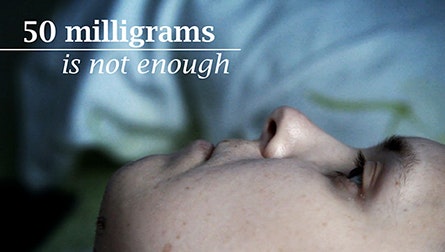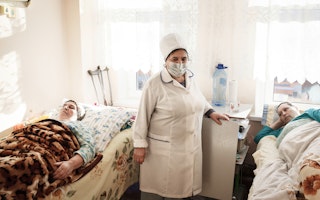For the Terminally Ill, Freedom from Pain Is a Human Right
By Paul Silva

The concept of human rights generally brings to mind some basic fundamental freedoms and protections: Freedom from torture. Freedom of opinion and expression. Freedom from slavery. But what about a person at the end of her life who is left to die in excruciating pain. Is there a human right to be free from this suffering?
Increasingly, more and more organizations are answering yes and advocating that palliative care—a holistic approach that improves the quality of life of patients and their families facing life-threatening illness—be considered a basic human right. That was the theme of a special session in Lisbon on Friday during the 12th Congress of the European Association for Palliative Care. Diederik Lohman of Human Rights Watch, one of the presenters at the session, discussed four major benefits to applying a human rights framework to palliative care:
- Governments are bound to promote, protect, and ensure human rights.
- Human rights tools can give a voice to the voiceless.
- A human rights approach is driven by advocacy and engagement of governments to address rights violations.
- Adopting a human rights framework can mobilize new voices for palliative care outside of the medical and public health professions.
While there may not be a clearly stated “right to palliative care” in international conventions or declarations, the right to access palliative care and pain treatment is recognized under international human rights law. The UN Committee on Economic, Social, and Cultural Rights has stated that it is critical to provide “attention and care for chronically and terminally ill persons, sparing them avoidable pain and enabling them to die with dignity.”
The UN Special Rapporteurs on Health and Torture have focused on the issue of pain relief specifically, stating, “The failure to ensure access to controlled medications for pain and suffering threatens fundamental rights to health and to protection against cruel, inhuman and degrading treatment.” (More on palliative care as a human right can be found in the Open Society Foundations fact sheet “Palliative Care as a Human Right.”)
Dr. Liz Gwyther of the Hospice Palliative Care Association of South Africa—another speaker at Friday’s panel—agreed with Lohman. “As a palliative care clinician, we need to learn to use human rights language.” Having spent many years working with people living with HIV, Gwyther has witnessed firsthand the power of a mobilized community that comes together to demand their rights. But unlike people living with HIV, palliative care does not have a built-in constituency: the frail are too weak, the dead are no longer there, and the bereaved are too overcome with grief to speak out.
Human rights advocates can join palliative care providers to give the voiceless a voice. Countries have to provide pain treatment medications such as morphine as part of their obligations under the right to health. If governments fail to take reasonable steps to ensure that people have access to adequate pain treatment, then they also may be in violation of the obligation to protect against cruel, inhuman, and degrading treatment.
The Open Society Foundations joined Human Rights Watch in Ukraine this month to address this very issue. More than 80,000 Ukrainians develop moderate to severe cancer pain each year. If not treated, these people face prolonged suffering—often for months. The pain incapacitates them, interferes with their sleep, and makes normal interaction with family and friends difficult. In a new report, Uncontrolled Pain: Ukraine's Obligation to Ensure Evidence-Based Palliative Care, many patients told Human Rights Watch that their suffering was so severe they would prefer to die rather than have to live with their pain.
Much of the difficulty in treating pain in Ukraine stems from the lack of oral morphine in the country and overly restrictive drug regulations. In a heavily covered press conference, Human Rights Watch called on Ukraine to “urgently introduce oral morphine and reform its unbalanced drug regulations.”
Perhaps one of the greatest benefits to addressing palliative care as a human rights issue is the persistence factor. Human rights defenders do not go away quietly. We make demands. We are not afraid to embarrass our governments. With persistence, we can force governments to make changes to improve the lives of people suffering needless pain.
Furthermore, as human right defenders we have an obligation to stand up for those who cannot stand up for themselves—those who are too weak, too bereaved, or who are no longer with us. In the last two decades palliative care has made impressive strides in the medical community, but now we must take up this issue with policymakers and governments to ensure that no one should spend their last months, weeks, or days suffering and in pain.
Join the fight for human rights in palliative care. Find out how you can help on the Stop Torture in Healthcare campaign site.
Until October 2012, Paul Silva was a senior communications officer for the Public Health Program of the Open Society Foundations.


